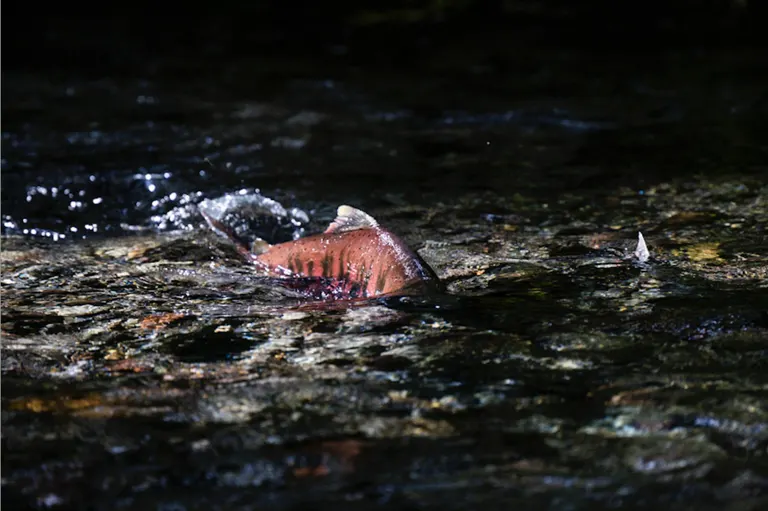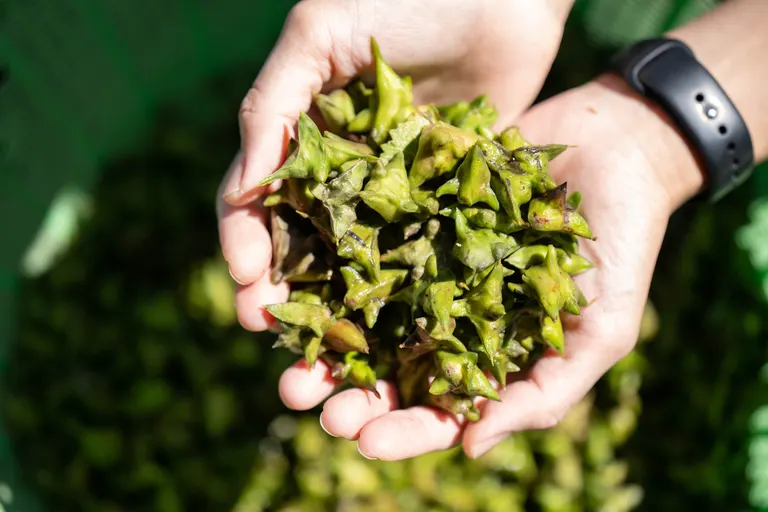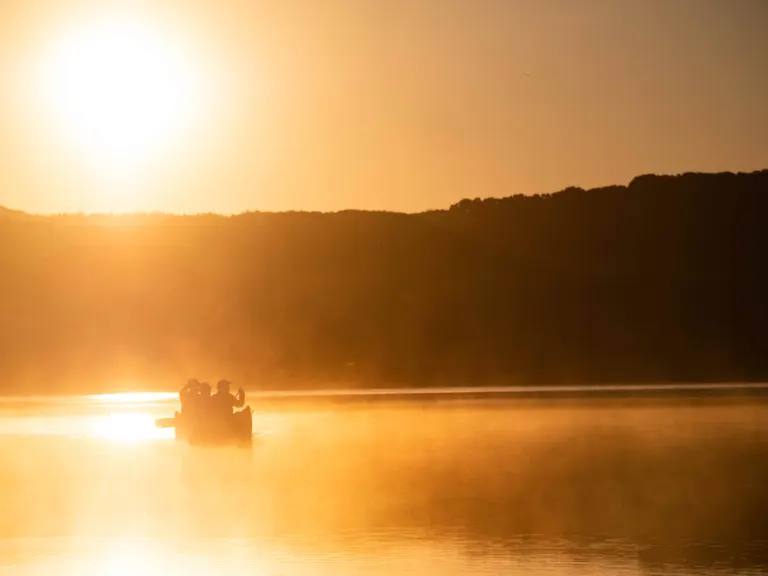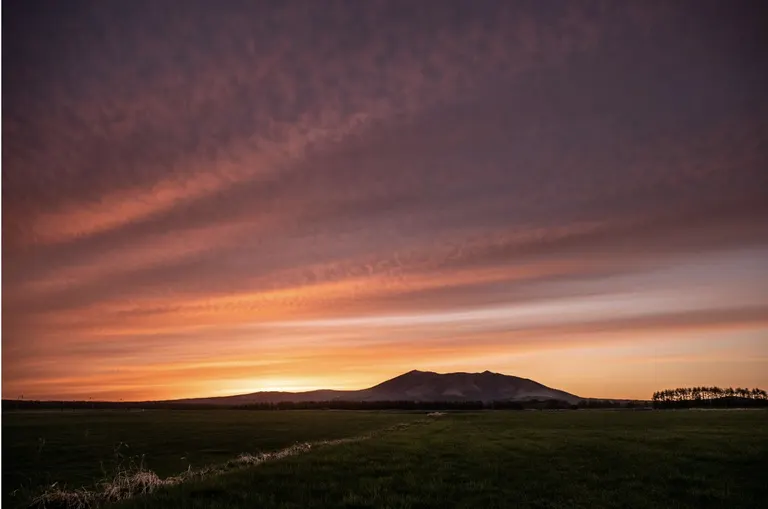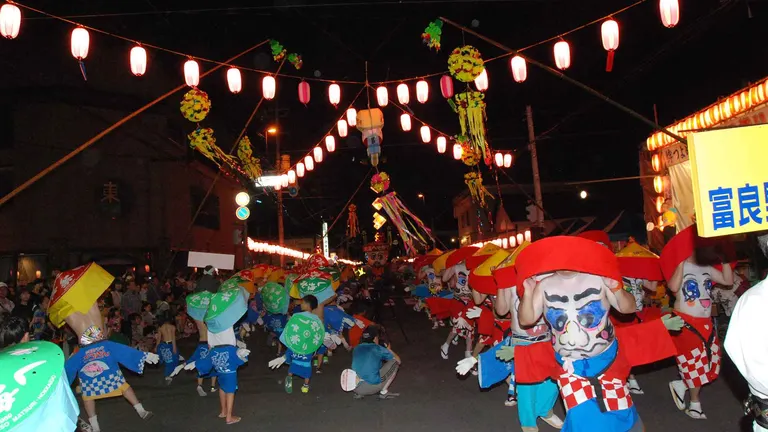!["I Want to Share the Quieter Voices": A 37-Year-Old's Pitch to Reshape Local TV [The Adventure of Local & Media, Part 3]|Domingo](https://p1-634a4370.imageflux.jp/w=768,f=webp:auto,q=78/https%3A%2F%2Fdomingo.ne.jp%2Fwp%2Fwp-content%2Fuploads%2F2021%2F09%2F718c5425182b718c98b68508b495476e.jpg)
ARTICLES
"I Want to Share the Quieter Voices": A 37-Year-Old's Pitch to Reshape Local TV [The Adventure of Local & Media, Part 3]
The Adventure with Kazutaka Shiozaki, an Auto Body Painter in Nakashibetsu
NHK Hokkaido cautiously accepted a project pitched by a local activist. This adventure, dubbed "Local Friends," quickly gained momentum, drawing in new allies. The group that assembled included a writer, a Buddhist monk, and an office worker from an auto body shop. The creation of an unprecedented TV program had begun—
Hello, I'm Ryo Osumi, a director at NHK.
This time, I'd like to introduce a friend who quietly, yet profoundly, changed how our TV station makes programs. He came to us with a desire to feature the "quieter voices" of the community, and he actually made it happen. Here is a behind-the-scenes look at the highly unconventional production of "Local Friends Stay & Report" and "Local Friends News," which air on NHK Hokkaido's evening news program, "Hot News Hokkaido."
1. Broadcasting the Pilot Program
2. Now Recruiting Local Friends
3. "So, I Organize Casual Chats..."
4. An Online Meeting Where Local Meets Media
5. Lifting Community Spirits, Especially in Times Like These
6. Let's Go on an "Online Journey"
7. The Online Journey Legacy Continues on "Asaichi"
8. Opening Up the Planning Meetings
9. "It's Always the Same People on TV"
10. "I Want to Convey the Smaller Voices, Not the Loud Ones"
11. Interview with Kazutaka Shiozaki
12. Towards a Local Society Where Everyone Can Thrive
13. \On Saturday, Oct. 16, Kazutaka Shiozaki will talk about the community and the program!/
Broadcasting the Pilot Program
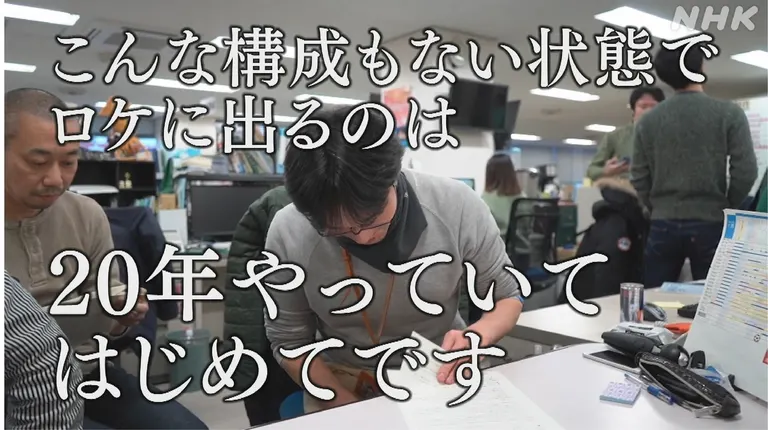
The "Local Friends" project, pitched to NHK by Okhotsk-based entrepreneur Kazuya Sano, aired first as a segment on the evening news in January 2020, followed by a late-night special on NHK General TV in Hokkaido in March.
A program made not by a TV station, but primarily by local people.
We on the media side were the ones most nervous about it. This was perfectly captured in the opening of the late-night version.
(Narration)
In a room at NHK, a veteran director was getting unusually nervous.
(Exchange between program production staff)
"Their grammar is different from ours. I have no idea how this will turn out." "They're the ones who suggested where to go, right? Let's just embrace the 'hands-off' concept." "In my 20 years, this is the first time I'm going into a shoot with no script like this."
(Narration)
It all started with a bold proposal brought to NHK.
A man named Kazukyun appeared and said something like this:
We can create a real story, unlike the usual NHK stuff. We locals can do it.
And so.
We were taken for quite a ride.
*At this point, the announcer trips and falls*
(Narration)
And now, into the real, unvarnished local scene.
A journey by the locals, for the locals.
Mr. Nakanishi is a dynamic individual who has self-published magazines. His network spans the entire Doto area (which, by the way, is about the size of Kyushu). With boundless vitality, Mr. Nakanishi, who is constantly driving around this vast region, introduced us to his friends.
▼ A friend who turned cow urine into a deodorant.
▼ A friend who won the competition to design the Olympic medal cases.
▼ A friend who bought a flash freezer to create seafood products produced by fishermen.
He took us around to meet his active friends in Doto, and the program became a showcase of their incredible energy.
Now Recruiting Local Friends
Furthermore, having influential figures like Kazuya Sano and Takuro Nakanishi produce the show generated significant buzz on social media, which gave us a major boost. And so, it was decided to turn it into a series, with six 15-minute episodes planned for the new fiscal year.
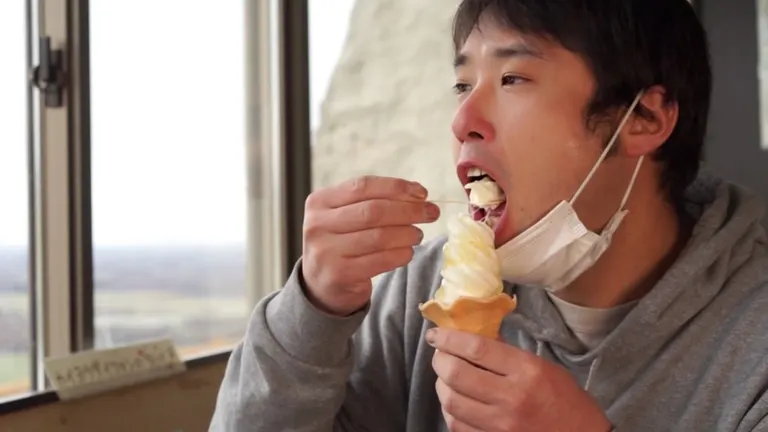
When we aired the late-night version in March, we at NHK Hokkaido took a gamble. We decided to put out an open call for Local Friends. At the end of the program, we displayed a large QR code with this message:
Want to produce a travel show using your deep local connections?
Visit the NHK Hokkaido website for details.
"So, I Organize Casual Chats..."
Someone in this town saw the "Recruiting Local Friends" ad. It was Kazutaka Shiozaki, a 37-year-old office worker at an auto body shop.
Mr. Shiozaki sent us a message saying he wanted to be a Local Friend, so I called him back.
"Thank you for applying. By the way, Mr. Shiozaki, are you involved in any community activities?" "Right now, I'm running a 'Zatsudan Lounge' (Casual Chat Lounge)." "Casual chats?" "Yeah, we all get together at a guesthouse and just chat." "And you'd like to feature that on the show?" "That's right."
It seemed he wanted to apply to feature local chats on a TV program.
"Are there any other interesting people in your community, Mr. Shiozaki?" "There's Mr. Sato. His family runs a shop called 'Sato's Gyoza.'" "Okay." "His mother used to be a part-time housewife, but her gyoza were so delicious that she opened a shop. But she was terrible at making flyers..."
I wondered if there were any more exciting stories.
I swallowed those words and continued to listen.
Even though we had put out an open call, I was already starting to worry if this approach would actually work for making a program.
An Online Meeting Where Local Meets Media
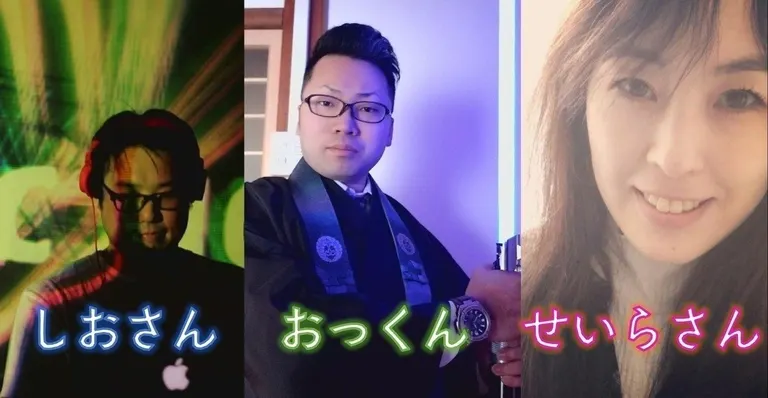
The applicants who gathered were a unique bunch.
Besides "Mr. Shiozaki, the office worker who wants to feature casual chats," there were three in total: a "freelance writer from Hakodate" and a "Buddhist monk from Date City."
Since they lived far from Sapporo, we decided to hold meetings online. This was back when the COVID-19 pandemic was just beginning, and online meetings were still a novelty.
"People might think of Hakodate as a tourist town, but I believe it can be seen as a town of culture," -said Seira Suzuki, the freelance writer from Hakodate.
"The owner of a coffee shop has an amazing collection of old books that I'd love for you to see..." "There are university students who renovated a hundred-year-old house and started living together..." A stream of unheard-of information poured out.
"Lately, I've started building a temple in VR space," -chimed in Masahiro Okuda, the monk from Date City, with this peculiar story.
He was involved in unusual activities, like holding memorial services using online meeting systems as a COVID-1T measure and planning a temple using virtual reality technology.
"Wow, that was fun." When the online meeting with the three of them ended, the one thing our production team felt was pure enjoyment.
People from different regions, professions, and age groups coming together to brainstorm what kind of TV program to create. It was incredibly fun, and we even felt a sense of healing.
We were already looking forward to the next meeting.
However, a major problem stood in our way.
Lifting Community Spirits, Especially in Times Like These
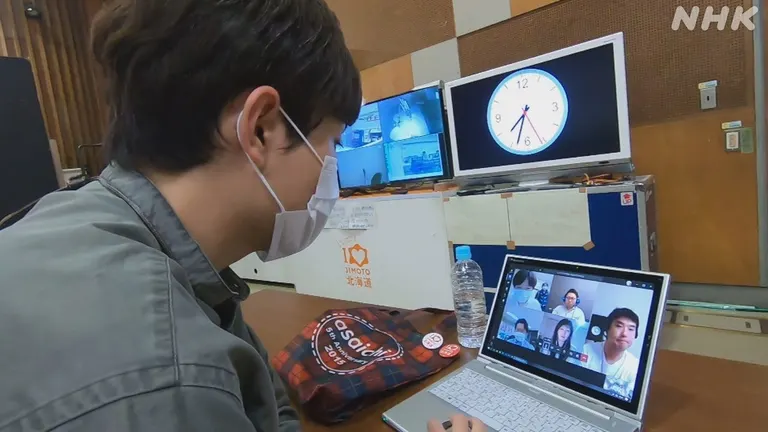
"We're no longer able to produce the travel program." On April 14, 2020, at our second online meeting, I broke the news to the three Local Friends.
The reason was the spread of COVID-19. As TV station employees, we were no longer able to go out on location for shoots.
"It's a shame, but we'll have to cancel the production of the travel show <#LocalFriendsEncounterTrip> and change it to a segment where the Local Friends
I was disheartened. When a TV director can't go on location, there's very little they can do. I wanted to at least keep the segment going, so I decided to rename it "Local Friends at Home" and had already started laying the groundwork within the station.
As an air of "I guess it can't be helped" filled the meeting, the first Local Friend, Takuro Nakanishi, spoke up.
"Is it really impossible to make the travel show?" "It's difficult because we absolutely cannot go on location." "But I think it's precisely in times like these that we need information that can cheer up our communities."
The other Local Friends voiced their agreement.
As a result, the "Local Friends at Home" segment was rejected, and we decided to find a way to continue the travel show.
But how?
Let's Go on an "Online Journey"
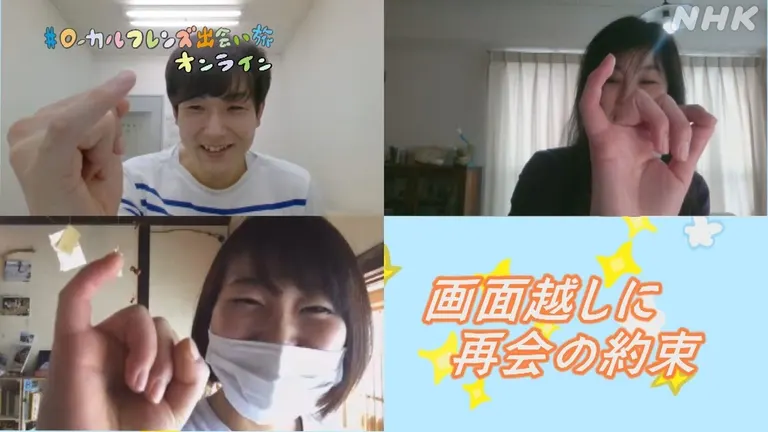
It was a travel show, but neither the traveler—the announcer—nor the film crew could go to the location.
In that case, could we have the local people film themselves?
Selfies, selfies. Come to think of it, there were those energetic university students...
With that in mind, I decided to contact the university students at the old-house-turned-share-house that Seira Suzuki, the writer from Hakodate, had told me about.
"We'd like to feature your activities." "Wow, that's great!" said the student representative.
"The thing is, we can't come to film. So we'd need you to film yourselves." "No problem at all!" And so, using two of their smartphones (one for live feed, one for recording), we decided to create a pseudo-travel show.
Apparently, they often did live streams on social media and were comfortable with filming themselves and being filmed.
Ten days after that meeting, a new segment called "Local Friends Encounter Trip: Online Edition" debuted on the evening news.
The Online Journey Legacy Continues on "Asaichi"
Seira Suzuki, who acted as the Local Friend, and the university students from the share house were all delighted.
What's more, this broadcast generated a response from within the media industry.
We received inquiries from production teams at commercial TV stations, and even a director from NHK's national morning show "Asaichi" contacted us to say they had used our segment as inspiration for a new corner.
It was a self-filmed program born out of necessity, created at the request of local people. But it became a success story, showing us that innovation can come from such places.
Opening Up the Planning Meetings
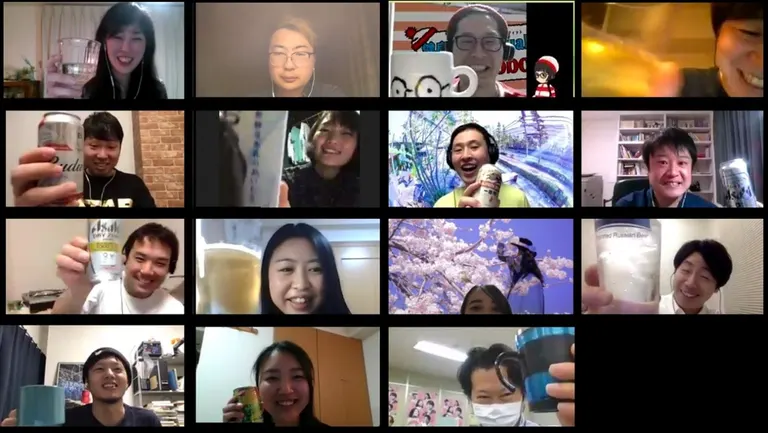
Thus, it became a regular practice for the Local Friends and the production team to hold online meetings.
▼ Held online once every two weeks
▼ Open to anyone involved
▼ Project direction is discussed openly
One thing that changed after we started these meetings was that the NHK production team stopped holding its own internal "planning meetings." We had learned (from the online journey experience) that decisions made within NHK could be overturned by the opinions of the Local Friends, so we decided to make decisions together with them from the start.
By opening up our planning meetings this way, we began to develop unique ideas, free from industry conventions, one after another.
One of these was the program's policy of actively featuring people who were not yet well-known.
"It's Always the Same People on TV"
"I feel like it's always the same people on TV these days." "True, when a scandal breaks, every channel covers the same thing. It kind of defeats the purpose of having multiple channels."
This isn't a new phenomenon, of course, but it's common to see coverage dominated by sensational topics involving politicians and celebrities. The conversation then turned to how this same structure applies to programs about local regions.
"When a TV station contacts the tourism association or the town hall, they end up featuring the same people over and over. The locals are thinking, 'Oh, that person again.'" "And once someone becomes famous from being on TV, other channels all start chasing them too." "With Local Friends, we want to introduce people who have never been on TV before."
And so, the program's direction was solidified: to focus not on the "amazing, prominent people in the community," but on the "people who live rich lives, even if they aren't widely known." This kind of sharp focus is great, isn't it?
If that's what the local people want, then we in the TV industry will create something that meets that desire.
We'll put it out there for the viewers to judge, and if it doesn't work, we'll pull the plug.
Our experimental spirit was accelerating.
"I Want to Convey the Smaller Voices, Not the Loud Ones"
He was the one who had wanted to feature "local casual chats" and "Sato's Gyoza."
After being exposed to Mr. Shiozaki's liberal way of thinking time and time again, I eventually came to believe that "the true role of a local broadcast station is to deliver the small voices of the community."
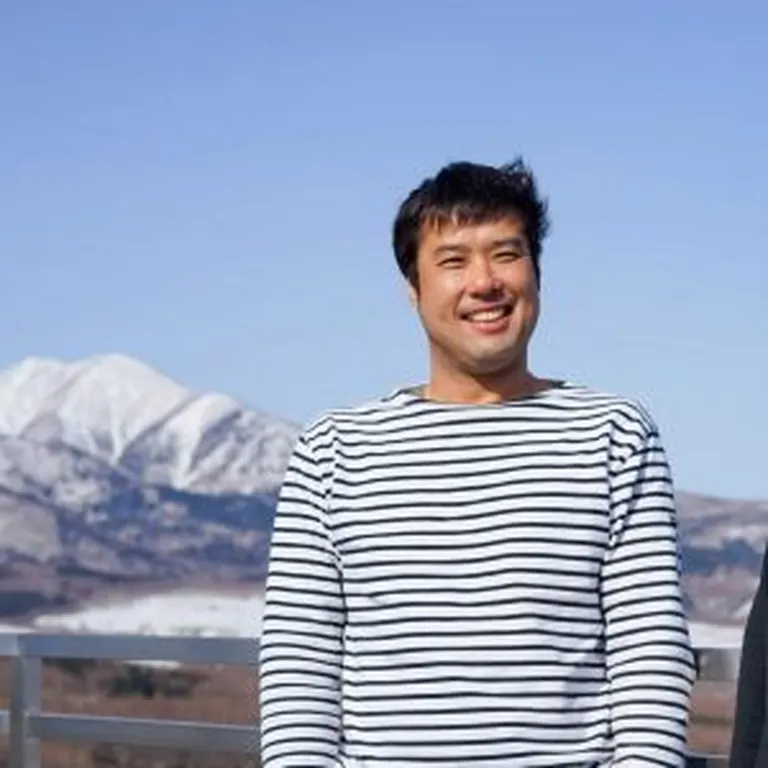
Profile
Office worker. Born in Nakashibetsu in 1982. Dropped out of Shibetsu High School, graduated from Yuho High School's correspondence program. Joined Shiozaki Body Co., Ltd. While working, he started DJing, primarily in the Doto area. Around 2018, he became interested in community development and produced "Zatsudan Lounge," a place for townspeople to engage in flat, open dialogue. He actively participates in town planning and other activities with an eye on the town's future.
――Why did you apply to be a Local Friend?
Originally, I didn't really like my hometown of Nakashibetsu. In fact, I was thinking I wanted to leave.
――Really? That's surprising.
But as I got into my mid-30s, I started to vaguely wonder if I could change my hometown. That's when I started the "Zatsudan Lounge" with some friends. I thought what I could do was listen to people. And not just the loud voices, but the quieter ones. But what I can do is really very little. It's not like I get a ton of 'likes' or anything.
Just as I was thinking that, I saw a post about Local Friends on Kazuya Sano's social media. I had always trusted his posts, so I figured it couldn't be a bad thing and decided to apply.
――What was it like after you applied?
I was full of anxiety at first. I was worried they wouldn't listen to what I had to say. I had this image of TV where a camera crew shows up, films what they've already decided to film, and then leaves.
But as we worked together, I realized they were willing to pick up on the smaller stories too. And when you have people from different positions and places gathered together, you start to see possibilities beyond a single perspective, which was interesting.
――Through your meetings, the program shifted towards featuring the smaller voices of the community.
There was a time when there was some criticism on social media about what a "local player" is. Like, who is a true local player. But I found that kind of line-drawing sad, and it just wears everyone out. I think it's better to be open and not draw lines between people who are active in the local community.
――Why are you so open to everyone, Mr. Shiozaki?
Maybe it's because I'm a DJ (laughs). Music is a culture that doesn't create walls.
Towards a Local Society Where Everyone Can Thrive
Whenever I get a message from someone wanting to be a Local Friend, I find myself stammering an explanation,
"Well, there isn't really a set criteria or selection process to 'hire' you as a Local Friend... we operate under this 'is-this-for-real' idea that everyone is a Local Friend." -which usually just makes them suspicious.
And so, an even more diverse group of Local Friends began to assemble.
Among them was an "ordinary housewife." That's right, this project's experimental nature has accelerated to the point where a housewife with no particular community activism experience is producing a TV program. But that's a story for a little later.
Then there was a "young person who had just moved to the area" who also served as a Local Friend.
This is also an amazing story. It's generally assumed that a community guide should be someone who has lived there for many years, but that convention is also becoming a thing of the past.
If we in the media had kept our planning meetings to ourselves, we never would have reached this territory. The adventure continues next time.
NoMaps Conference 2021
【“Building Community Using TV”】
NHK Local Friends Stay & Report <Domingo & NHK Hokkaido Session>
TV is moving from an era of "watching" to an era of "using." Since 2019, NHK Hokkaido's "Local Friends" has abandoned the traditional model of TV station directors making programs, instead entrusting planning and reporting to local players in a method of
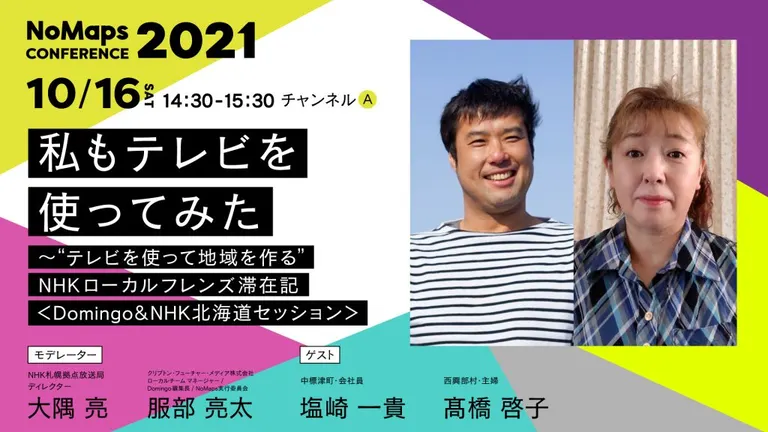
Saturday, October 16, 2021 ・ NoMaps YouTube Channel ・ Free
14:30~15:30 I Tried Using TV, Too
https://no-maps.jp/2021/program/16a1430/
Some Local Friends have limited experience as local players. Mr. Shiozaki, who worked in auto body painting in Nakashibetsu, and Ms. Takahashi, a housewife from Nishi-Okoppe, found themselves producing a TV program by a twist of fate and say they experienced a surprising transformation. In this session, we will hear from them about their experiences and the changes they brought about.
Speakers: Kazutaka Shiozaki (Office Worker), Keiko Takahashi (Housewife)
Author Profile
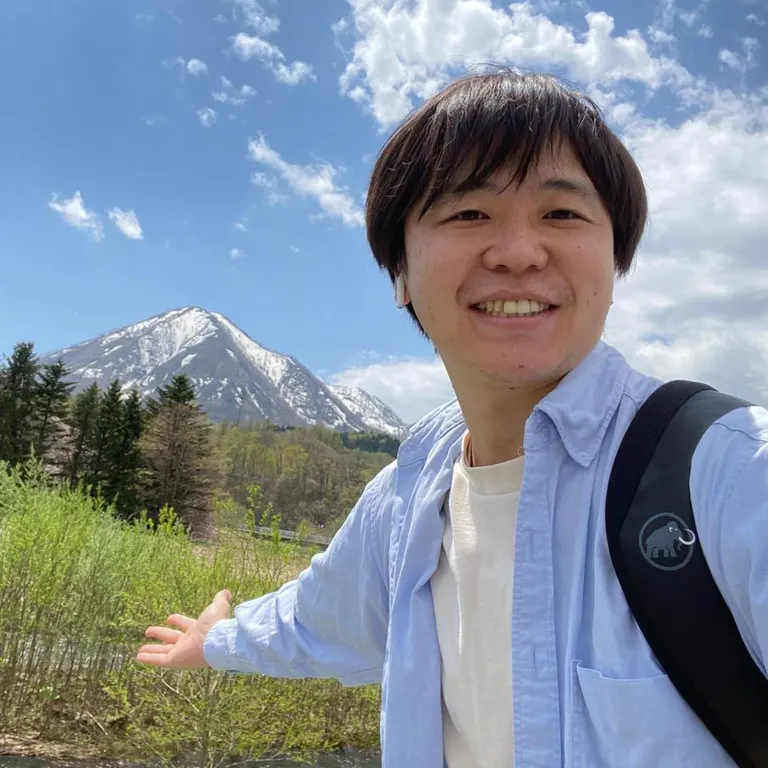 Director, NHK Sapporo Station
Ryo Osumi
Director, NHK Sapporo Station
Ryo Osumi
Born in Mishima, Shizuoka Prefecture, in 1984. Joined NHK as a director in 2008. Specializes in launching new projects and developed "No-Nare" and "Professional Children's University." Since 2019 in Hokkaido, he has planned "Local Friends," "Shiraberuka," and "Moya Cafe" (Obihiro Station). For Local Friends, he has been involved in productions in Doto, Hakodate, Date, Nakashibetsu, Shiretoko, Kiyosato, Soya, Kimobetsu, and Teshikaga. Despite his youthful appearance, he is a father of two. Has been skiing for two years.
<Click here for past articles in this series>
"The Adventure of Local & Media"
(1) Building Community Using TV ~Introduction~
(2) A Single Proposal That Questioned NHK's Resolve






